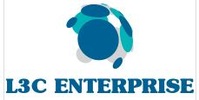Services
Is it possible for a company to make money without focusing solely on profit? Is success only measured in dollars? Times are a changing. There are companies who do make money and measure their success in lives impacted and dollars earned. There is a profit mission and a social mission, both with at least equal importance. Not only do these companies exist, but they exist in virtually every sector.
Social Enterprise: A social enterprise is a business firm designed to remedy or alleviate certain unfavorable conditions of life in a community. Social enterprise is used as an umbrella term for any business with a social mission. As with any business, making a profit is still a priority. But the way the company makes that profit is equally important. Under the umbrella of social enterprise also lie social businesses, L3Cs, social finance, B Corporations, and Flexible Purpose Corporations.
Social Business: A social business is a cause-driven business where the investors gradually make a return on investment, but do not make a profit beyond that. “Sustainability of the company indicates that it is running as a business. The objective of the company is to achieve social goal/s.”
L3C: A low-profit limited liability company (L3C) is a new legal business entity that fosters socially beneficial, for-profit ventures. “An L3C is a hybrid legal structure combining the financial advantages of the limited liability company, an LLC, with the social advantages of a non-profit entity.”An L3C is one way to formally structure a social business.
Social Finance: Social finance is impact investing. Finance companies invest in socially responsible companies in order to have a social impact.
B Corporation: A term coined by B Lab, “Certified B Corporations are a new type of corporation which uses the power of business to solve social and environmental problems. B Corps are unlike traditional businesses because they meet comprehensive and transparent social and environmental performance standards, meet higher legal accountability standard and build business constituency for good business.”
Flexible Purpose Corporations: Flexible Purpose Corporation (FPC). Traditional corporations are obligated to put profitability above all else. The FPC allows corporations more leeway in pursuing “special purposes” or social and environmental missions.
Social Enterprise: A social enterprise is a business firm designed to remedy or alleviate certain unfavorable conditions of life in a community. Social enterprise is used as an umbrella term for any business with a social mission. As with any business, making a profit is still a priority. But the way the company makes that profit is equally important. Under the umbrella of social enterprise also lie social businesses, L3Cs, social finance, B Corporations, and Flexible Purpose Corporations.
Social Business: A social business is a cause-driven business where the investors gradually make a return on investment, but do not make a profit beyond that. “Sustainability of the company indicates that it is running as a business. The objective of the company is to achieve social goal/s.”
L3C: A low-profit limited liability company (L3C) is a new legal business entity that fosters socially beneficial, for-profit ventures. “An L3C is a hybrid legal structure combining the financial advantages of the limited liability company, an LLC, with the social advantages of a non-profit entity.”An L3C is one way to formally structure a social business.
Social Finance: Social finance is impact investing. Finance companies invest in socially responsible companies in order to have a social impact.
B Corporation: A term coined by B Lab, “Certified B Corporations are a new type of corporation which uses the power of business to solve social and environmental problems. B Corps are unlike traditional businesses because they meet comprehensive and transparent social and environmental performance standards, meet higher legal accountability standard and build business constituency for good business.”
Flexible Purpose Corporations: Flexible Purpose Corporation (FPC). Traditional corporations are obligated to put profitability above all else. The FPC allows corporations more leeway in pursuing “special purposes” or social and environmental missions.
